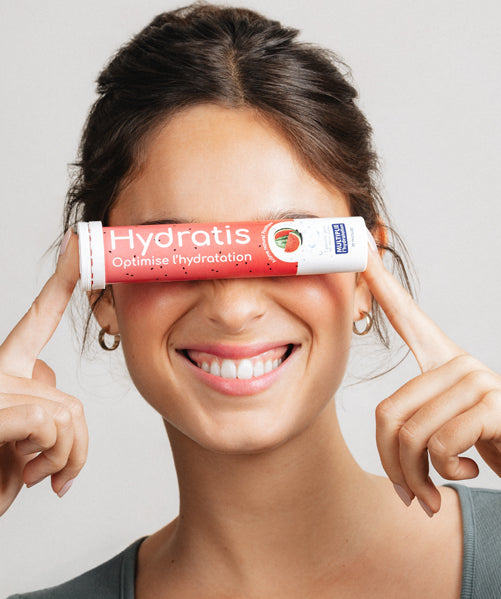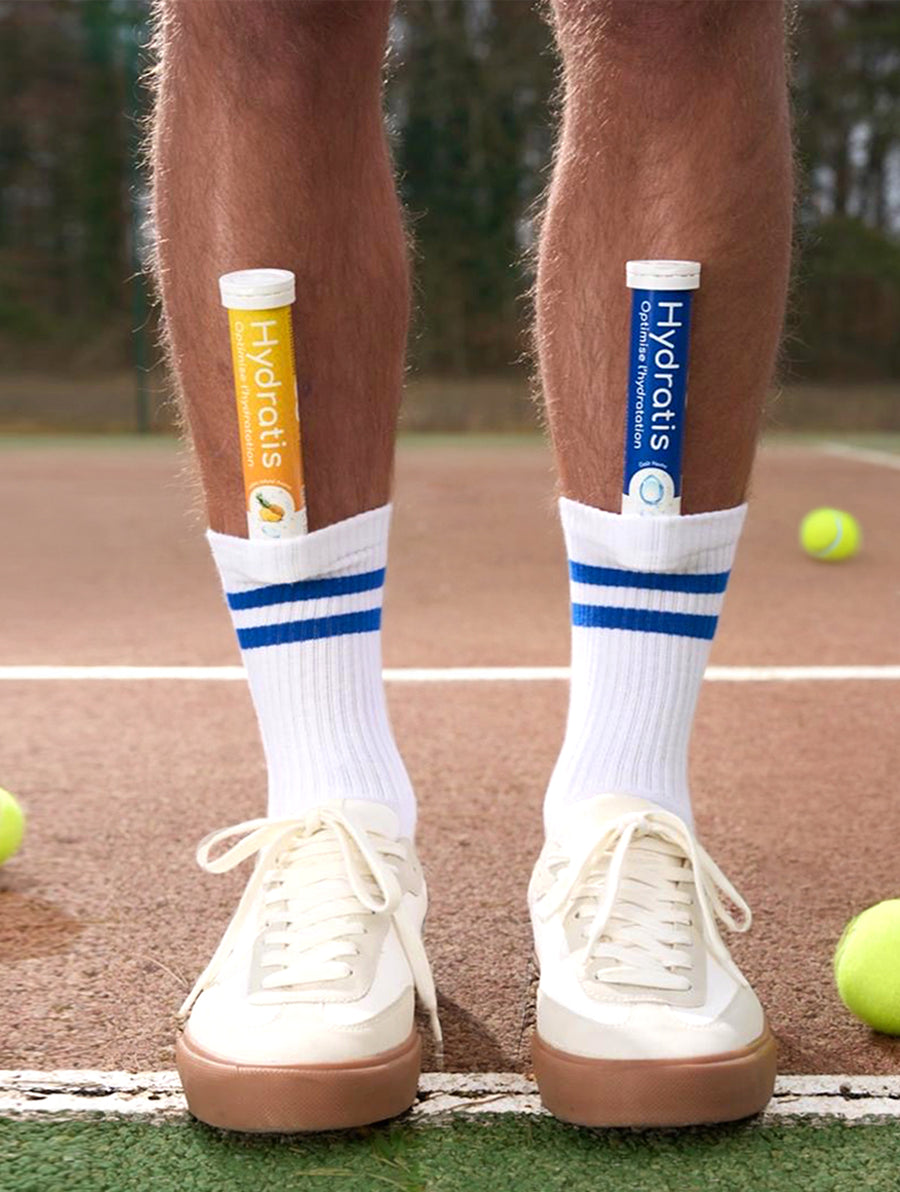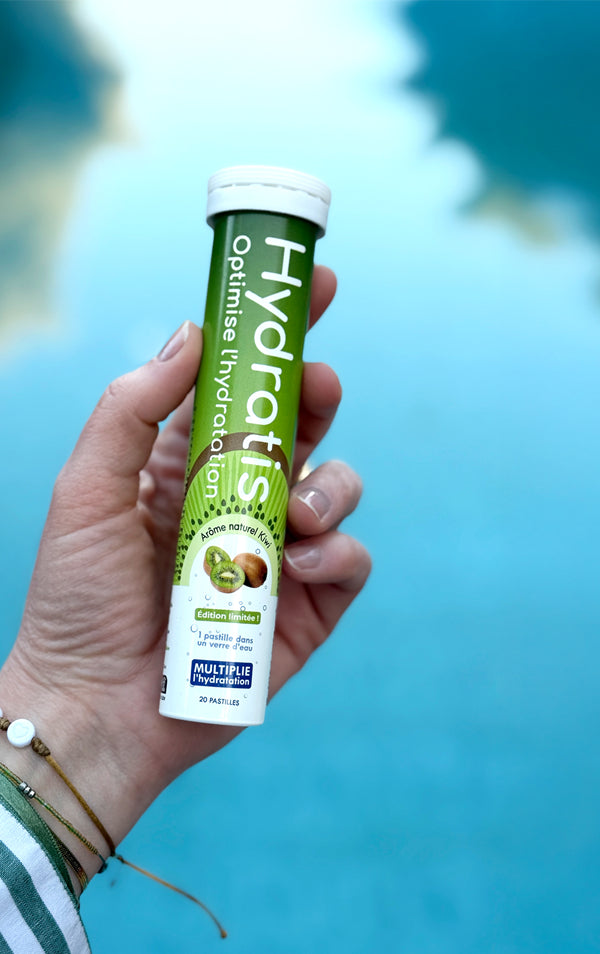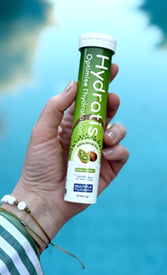Nutrition plays a key role in your athletic performance , especially during a marathon. Good nutrition improves endurance and promotes recovery . Careful nutritional preparation in the days leading up to the race is essential for peak performance and arriving in top form on race day. In this article, we'll give you the keys to optimizing your diet before, during, and after the race !
1. The fundamentals of nutrition before a marathon
1.1 Why is nutrition essential in marathon preparation?
Proper nutrition helps optimize your performance and reduce the risk of injury. Muscles need energy to function efficiently over long distances, and a suitable diet ensures an optimal supply of essential nutrients for such a race.
A balanced diet also helps prevent digestive problems, muscle cramps, and fatigue. By maintaining good hydration and consuming the right macronutrients, you promote faster recovery and better endurance during the event.
1.2 The specific nutritional needs of a marathon runner
Carbohydrates are the primary source of energy and should make up approximately 55 to 65% of your total calorie intake. Complex carbohydrates such as pasta, brown rice, or quinoa are preferable because they allow carbohydrates to be stored in the muscles.
Proteins are also important for muscle repair and should make up about 15% of total energy intake. They are found in white meats , fish, and eggs. or even legumes.
Lipids are essential for your hormonal balance and recovery. They should be consumed in moderation, favoring good sources such as vegetable oils, nuts, and oily fish.
Minerals and vitamins are invaluable allies in preparing for your marathon: sodium plays a key role in maintaining the body's fluid balance , compensating for water and electrolyte losses through perspiration. Potassium contributes not only to the proper functioning of the nervous system but also to muscle contraction. Calcium is involved in both muscle contraction and relaxation. Magnesium is multifunctional: it helps reduce fatigue, supports electrolyte balance , promotes normal energy metabolism, and ensures the proper functioning of the nervous system and muscles. Zinc, often overlooked, contributes to optimal macronutrient metabolism, supports the immune system, and protects cells against oxidative stress, which is essential during periods of intense training. Finally, B vitamins are essential for energy metabolism, while vitamin C contributes to recovery and the proper functioning of the immune system.
Hydration is also crucial to prevent dehydration and optimize your performance. It is recommended to drink regularly , favoring water and isotonic drinks before, during, and after exercise.
1.3 Mistakes to avoid in the last week

As the marathon approaches, certain dietary mistakes can compromise your performance and comfort on race day, so here are the main errors to avoid:
Excessive consumption of products rich in saturated fats is discouraged because these foods are often difficult to digest and can lead to digestive discomfort, or even gastrointestinal disorders during exercise.
Alcohol should also be avoided during this period because, in addition to promoting dehydration, it will impair muscle recovery and disrupt sleep quality, two essential elements for arriving in shape on the big day.
Raw vegetables, large quantities of legumes, or very spicy dishes can also cause digestive problems such as bloating, pain, and intestinal discomfort. Opt for simple, well-tolerated, and easily digestible meals tailored to your individual sensitivities.
2. Meal planning: what to eat each day before the marathon?
2.1 Days -7 to -4: Energy and nutritional balance
It's essential to include a varied diet that includes complex carbohydrates, protein, vegetables, and healthy fats. Here's an example of what you can eat during the first four days of the week.
|
Day |
Breakfast |
Lunch |
Dinner |
|
7 days to go |
Oatmeal with dried fruit and plain yogurt |
Grilled chicken, quinoa, green beans, olive oil |
Fish, sweet potato, roasted vegetables |
|
D-6 |
Wholemeal bread, egg, avocado, green tea |
Brown rice, turkey, sautéed vegetables |
Vegetable omelet, green salad, wholegrain bread |
|
5 days to go |
Banana smoothie with almond milk and chia seeds |
Wholemeal pasta, salmon, steamed vegetables |
Basmati rice, tofu, stir-fried vegetables |
|
D-4 |
Fruit muesli, soy milk |
Roast chicken, sweet potato, green beans |
Quinoa, hard-boiled eggs, raw vegetables, rapeseed oil |
2.2 Days -3 to -2: Carbohydrate intake and fiber reduction
Starting three days before the race, the goal is to supercharge your glycogen stores to be at your best on race day. To do this, increase the proportion of carbohydrates in your diet (pasta, rice, sweet potato, white bread) while reducing fiber to minimize the risk of digestive issues during the race. Also, reduce your consumption of raw vegetables and whole grains.
Some examples of menus:
|
Day |
Breakfast |
Lunch |
Dinner |
|
D-3 |
Slices of white bread, jam, plain yogurt, fruit juice |
White rice, chicken fillet, cooked carrots |
White pasta, fish fillet |
|
D-2 |
Oatmeal, milk or plain yogurt, banana, fruit juice |
White rice, turkey, steamed vegetables |
Sweet potato, salmon, green beans |
2.3 Day -1: The strategic meal before the race
The evening meal before the marathon should consist of foods rich in carbohydrates, moderate in protein and low in fat.
An ideal meal includes starchy foods, accompanied by a small portion of white meat and a drizzle of olive oil, for example. It's advisable to eat early to allow time for digestion before going to sleep. This meal helps replenish glycogen stores without weighing down the stomach. Also, try to eat early enough to optimize digestion and sleep.
3. What should I eat on the morning of the marathon?
3.1 The role of pre-race breakfast
Breakfast on race day is an important step in your preparation; it should optimize your glycogen stores and provide the energy needed for the effort, while also being easily digestible. Sufficient carbohydrate intake reduces the risk of fatigue during the race.
3.2 Recommended foods
The goal is to prioritize well-tolerated foods with a moderate to high glycemic index to ensure a gradual release of energy. For example, you could choose white bread with jam, a ripe banana, a suitable energy bar, and a hot beverage such as coffee, tea, or herbal tea to stimulate your body. The key is to select foods you are accustomed to eating and that won't upset your digestion.
3.3 The importance of eating 3 hours before departure
Eating breakfast three hours before the start will allow for proper digestion and help prevent stomach problems during the race. Furthermore, it's better for your body to use energy for running rather than digestion. Drinking plenty of water is also recommended to stay well-hydrated before the marathon.
4. Nutrition during the marathon

4.1 Hydration and nutrition during the race
Hydration plays a crucial role in performance and fatigue prevention. It is particularly recommended to drink regularly, every 15 to 20 minutes, in small sips, to avoid dehydration without overloading the stomach. Hypotonic or isotonic drinks are especially recommended as they effectively replenish lost water, electrolytes (sodium, potassium, magnesium), and carbohydrates, while also promoting rapid water absorption.
4.2 Small snacks recommended to maintain energy
To maintain a stable energy level and limit the risk of hitting the wall (the dreaded sudden drop in energy around the 30km mark), it's advisable to consume easily digestible snacks. Energy gels, taken every 45 minutes to an hour depending on your tolerance and strategy, are a good option. You can also alternate with dried fruit (raisins, apricots), fruit pastes, or energy bars designed for exertion. The important thing is to anticipate and not wait until you're hungry or thirsty to refuel.
5. The post-marathon meal: optimal recovery
5.1 Why is eating well after a race crucial?
After a marathon, the body needs to recover effectively. Replenishing glycogen stores, repairing muscles , and replacing lost fluids are the priority! A balanced meal will help reduce fatigue and accelerate recovery.
5.2 The ideal post-marathon meal

A balanced post-marathon meal should contain all the nutrients necessary for recovery: lean proteins (chicken, fish, tofu) to aid muscle repair; carbohydrates (rice, pasta, quinoa, sweet potatoes) to replenish glycogen stores; and antioxidant-rich vegetables (in small quantities to avoid overloading the digestive system) such as spinach, carrots, or bell peppers to reduce inflammation , support the immune system , and thus promote recovery.
5.3 Importance of hydration and electrolytes
Hydration doesn't end when the race finishes. After a marathon, it's crucial to restore the body's fluid and electrolyte balance . Drinks containing sodium, potassium, magnesium, and carbohydrates promote rehydration and recovery. In addition, foods naturally rich in electrolytes (bananas, dried fruit, broths) are also good options. Always have a recovery drink or an electrolyte drink on hand immediately after the race. It's recommended to consume 1.5 times your weight loss in water! For example, someone who loses 2 kg during a marathon should consume 2 x 1.5, or 3 liters, of fluid after the race!
6. Specific advice for vegan runners
If you follow a vegan diet, it's essential to pay close attention to your protein and carbohydrate intake, which are crucial for supporting performance and optimizing recovery. Incorporate suitable plant-based sources that are easy to digest and nutrient-rich, such as tofu, tempeh, pea protein, or low-fiber legumes like red lentils. When chosen carefully, these alternatives will allow you to effectively meet your nutritional needs throughout your training and after exercise.
6.1 Examples of adapted recipes
Before the race, you can opt for a light and energizing meal such as a bowl of quinoa, marinated tofu, roasted sweet potato, and steamed vegetables. This type of meal will provide you with complex carbohydrates, plant-based protein, and essential micronutrients without overloading your digestive system.
For recovery , smoothies are particularly suitable. To make one, blend plant-based milk, a ripe banana, and plant-based protein powder (pea, rice, or hemp) to promote glycogen replenishment and muscle repair.
By adapting your diet with varied and well-tolerated plant-based sources, you ensure an optimal intake of nutrients throughout the preparation and recovery phase after the marathon.
7. Simple and effective recipes for the week before the marathon
7.1 Homemade Energy Pancakes
Ingredients: 100g oat flour, 1 banana, 200 mL plant-based milk, 2 eggs, 1 tablespoon of honey, ½ teaspoon of baking powder, ½ teaspoon of cinnamon.
Preparation : Mix all the ingredients in a bowl until you obtain a smooth batter. Heat a pan and cook the pancakes for a few minutes on each side.

7.2 Easy and Nutritious Rice Pudding
Ingredients: 100g of round rice, 500ml of plant-based milk, 1 tablespoon of honey, 1 vanilla pod.
Preparation: Heat the milk with the vanilla. Add the rice and cook over low heat, stirring until the mixture is creamy. Sweeten with honey before serving.
7.3 Energy bars with dried fruit
Ingredients: 150g oat flakes, 100g dates, 50g almonds, 2 tablespoons of honey.
Preparation: Blend the dates with the honey and oat flakes. Add the crushed almonds. Press into a mold and let it rest before cutting into bars.
FAQ: Your frequently asked questions
How should I eat the week before a marathon?
The week leading up to a marathon is crucial for preparing your body for the intense effort you'll be demanding of it. Proper nutrition can make the difference between peak performance and a difficult race. Here are some tips for fueling yourself correctly before the big day.
From the start of the week, it's important to adopt a balanced diet. Consume complex carbohydrates such as whole-wheat pasta, quinoa, or potatoes. These provide a source of carbohydrates that will last until the race. At the same time, remember to eat chicken, fish, eggs, or tofu, as well as legumes to provide your body with vitamins and minerals.
Starting 3 to 4 days before the marathon, it's advisable to gradually increase your carbohydrate intake . This will replenish your glycogen stores in your muscles and liver, which will be your primary energy sources during the race. You can opt for meals based on pasta, rice, or other starchy foods to maximize these reserves.
It's also crucial to stay well-hydrated throughout the week. Drink plenty of water and don't hesitate to add electrolyte drinks to replenish the minerals lost through sweat. This will help maintain a good electrolyte balance and prevent dehydration on race day.

Finally, while the focus is on carbohydrates, don't neglect healthy fats . Incorporate avocados, nuts, or olive oil into your meals. These fats can help you sustain your effort longer during prolonged activity.
What foods should I avoid the day before a race?
The day before the marathon, it is important not to burden your digestion and to be sure that your body is ready for the effort because certain foods can disrupt your digestion and lead to discomfort during the race.
First, avoid fatty and fried foods . These can be difficult to digest and may cause stomach pain or bloating. Similarly, overly spicy foods, while they add flavor to your meals, can irritate your stomach and cause digestive problems, which isn't ideal the day before your race.
Furthermore, vegetables and legumes can also cause bloating and gas because they are high in fiber. While they are very nutritious, consuming them the day before a marathon can be somewhat risky for your digestive comfort.
Alcohol should also be avoided . Not only does alcohol dehydrate you, but it can also impair the quality of your sleep. And good sleep is crucial for recovery before strenuous physical activity.
When should I stop taking fiber supplements before a marathon?
Fiber is valuable in everyday life , but during a race, it can sometimes cause digestive discomfort (bloating, accelerated bowel movements). To avoid this, it is recommended to reduce your fiber intake in the 2 to 3 days leading up to the race.
The goal is to allow your digestive system to prepare for the marathon without being overtaxed.
Instead, opt for simple and easily digestible carbohydrate sources , such as white bread, white rice, and white pasta. These foods are quickly digested and allow for more efficient energy release during the race, while reducing the risk of digestive problems.
Nutrition before a marathon has a real impact on your performance on race day. It's therefore important to try to follow the carbohydrate increase and other advice we've discussed in this article. You're now ready to tackle this challenge in the best possible conditions. Have a great run!
Bibliography
Marathon runners and their nutrition views, practices, and sources of nutrition information Flynn, Lauren . Syracuse University ProQuest Dissertations & Theses, 2014. 1556184. https://surface.syr.edu/cgi/viewcontent.cgi?article=1048&context=thesis
Stellingwerff, T. (2012). Case Study: Nutrition and Training Periodization in Three Elite Marathon Runners. In International Journal of Sport Nutrition and Exercise Metabolism (Vol. 22, Issue 5, pp. 392–400). Human Kinetics. https://journals.humankinetics.com/view/journals/ijsnem/22/5/article-p392.xml






